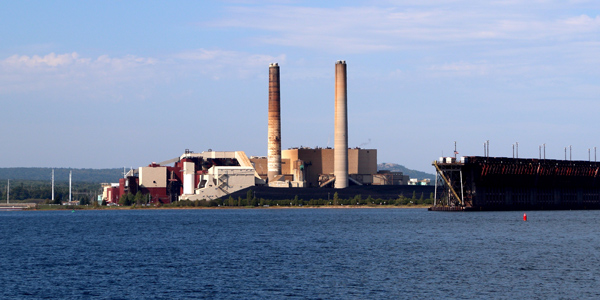By Amanda Durish Cook
FERC on Tuesday rejected a Michigan request for a stay of a previous order approving MISO’s refund report related to a system support resource (SSR) on the state’s Upper Peninsula.
The Michigan Public Service Commission joined with multiple load-serving entities in the state to request a stay of the surcharges associated with MISO’s 2017 refund report, arguing that a FERC-ordered reallocation of the SSR costs for the Presque Isle coal plant amounted to retroactive ratemaking.
But FERC determined that the requestors “will not suffer irreparable harm absent a stay” of the reallocation of costs to cover the unprofitable but necessary operation of the plant in 2014 and 2015 (ER14-2952-005).
The PSC and many of the same load-serving entities are also party to an ongoing D.C. Circuit Court of Appeals case challenging FERC’s 2015 order directing MISO to reallocate SSR costs to LSEs that required the SSR for reliability, instead of to all LSEs in the American Transmission Co. pricing zone on a pro rata basis. The groups argue the reallocation requires Upper Peninsula ratepayers to cover a disproportionate 98% share of the SSR costs, which Wisconsin ratepayers should help defray. (See Michigan Groups Contest Presque Isle Cost Allocation.) MISO’s 2017 surcharge report includes cost reductions from a FERC-ordered $24.6 million refund, after the commission decided Presque Isle owner Wisconsin Electric Power Co. overcharged ratepayers for the two SSR agreements.
The Michigan groups contended that, absent a stay, the refund process would become too complex, especially if FERC’s reallocation order is reversed. They also said relocation of customers complicates the refund process.
“ … It would be impossible to ensure that the surcharges imposed by MISO are billed to the retail customers who received service during the surcharge period in 2014, and it would be impossible to ensure that any future refunds received by load-serving entities from MISO are credited to the same customers who paid the surcharges,” they said.
But FERC said overseeing the surcharges after reallocation and refund, while challenging, is not impossible. The commission also said the parties’ “irreparable harm” argument does not hold up, since corrective relief could be ordered by the D.C. Circuit.
“The difficulties alleged by the Michigan parties are typical of the challenges that jurisdictional entities must overcome to implement the commission’s remedial actions,” FERC said. “ … Nothing the Michigan parties have argued has shown that issuing a stay is required by the public interest.”
FERC also said the Michigan parties could not prove the surcharges amounted to retroactive rate increases, noting the commission has “broad equitable discretion in determining whether and how to apply remedies in any particular case.”





